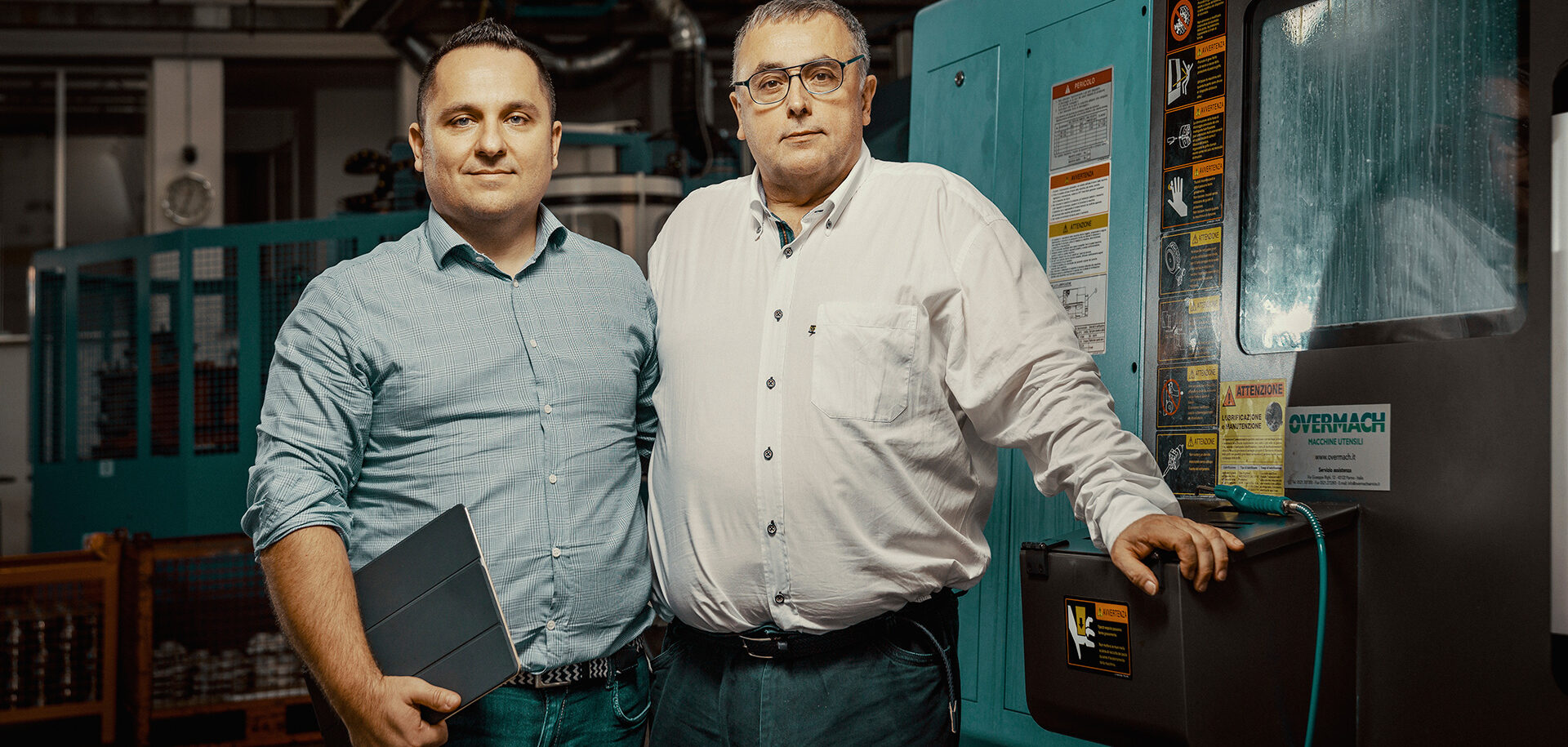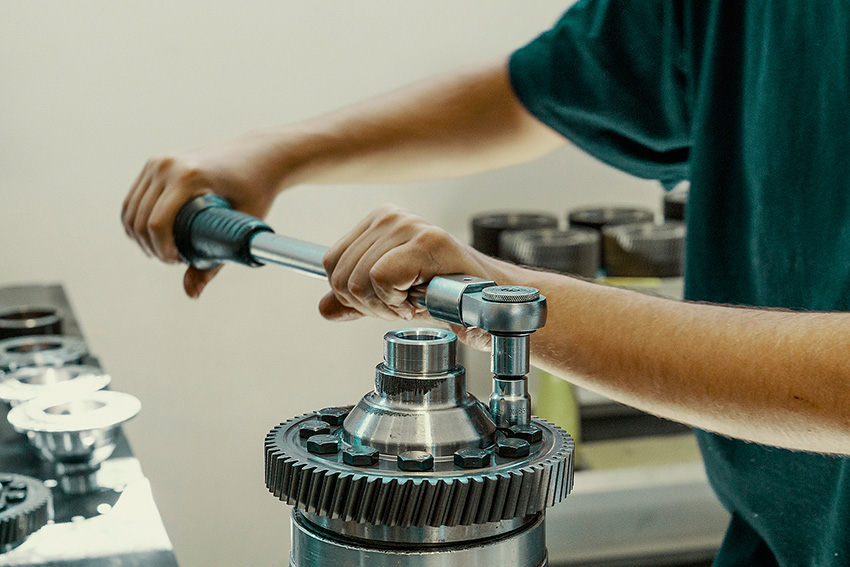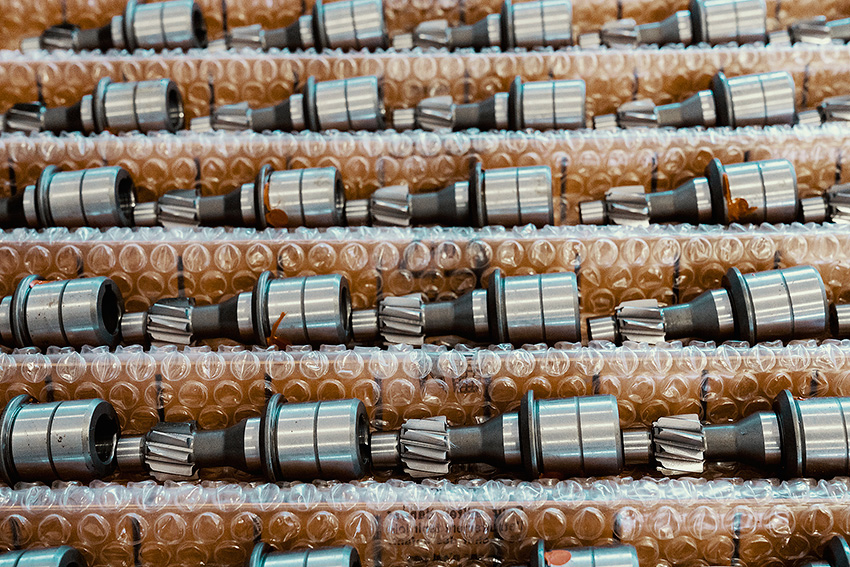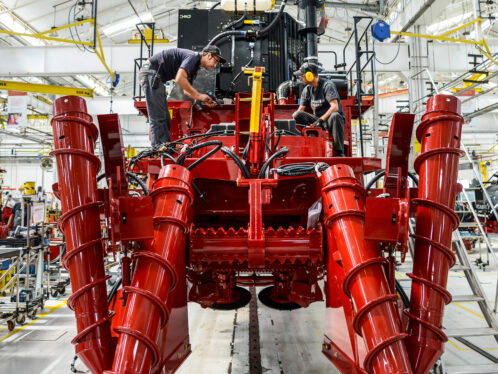
Electric instinct in Italy
Twenty years ago the Benevelli family shifted the focus of their company from internal combustion engines to all things electric. Today the company, located in the Modena region in northern Italy, is reaping the rewards.
Lightning, so to speak, struck the northern Italian town of Rubiera, Italy, in 1996. That was the year Alberto Benevelli electrified the future of his family-owned company, Benevelli S.r.l., which had been operating in the town for three decades.
Alberto Benevelli heard that a local company was developing electric vehicles for materials handling. Going on instinct, he decided to produce a transaxle designed specifically for a battery-operated vehicle. He realized that powertrains then on the market were too heavy, too noisy or too unreliable for this new application.
Sometimes we are struck by how many sectors we have succeeded in entering, all using electric motors.
Alessandro Benevelli
Commercial Director Benevelli
By changing its product focus, the Benevelli company had to change its transmissions to accommodate new technical requirements. To begin with, there are more electronics and fewer mechanical parts in an electric motor, and they require a much higher level of precision.
Units are smaller, energy efficiency is critical, and noise suddenly becomes a factor. “This wasn’t important with petrol motors because they made so much noise that you couldn’t hear the transmission,” recalls Benevelli. “But electric motors don’t make noise so the sound of the transmission is relevant. If you have a noisy electric motor, a client is going to think that it isn’t made well.”
Electric motors use fewer bearings than petrol motors, but precision is paramount. So the company elevated the precision specifications for its bearings, as well as the precision of its cogwheels. It currently uses standard SKF bearings (radial deep groove ball, double-row angular contact ball and tapered roller bearings) recommended for their performance reliability in severe and varied working conditions.
Autonomous vehicles call for even greater precision, and testing and quality control are extremely rigorous. “What changes for us is that the precision of gears for autonomous vehicles must be measured in microns,” says Matteo Benevelli, Alberto’s younger son, who directs production for the company.
Many applications are for compact vehicles, autonomous and not, that have high performance standards. “The transaxle must be small and strong,” says Alessandro Benevelli, Alberto’s older son and the company’s commercial director.
The company currently produces six lines of transaxles exclusively for electric vehicles. They are differentiated by size, power, torque, load, brake system and motor specifications. Sales increased by 500 percent between 2013 and 2018, and the Benevelli company receives at least seven unsolicited product requests every week.
These range from street sweepers to tow tractors, warehouse platforms to wheelchairs, construction-site carts to driverless buses, harvesting equipment to ice resurfacers at skating rinks, airport ground support vehicles to Amazon delivery trucks, racecars for E-Motorsport to electric assistance for horse-drawn carriages. “Sometimes we are struck by how many sectors we have succeeded in entering, all using electric motors,” Alessandro Benevelli says.
The smallest category – one in rapid expansion – is what the company calls “e-mobility”. It is not called “automotive” because it encompasses everything that can move along roads or pathways, which might not be an automobile per se.
For example, the French company Navya has produced an autonomous minibus, the Autonom Shuttle, which already operates in 14 cities in seven countries. A newer project is the Autonom Cab, also entirely electrically driven. Benevelli has supplied the powertrains for 150 vehicles, and orders for an additional 200 units are expected in 2019.
The family is so convinced of the future of electric power that the company will be producing an electric motor series with the Benevelli name in 2019 to ensure that its powertrains are fully integrated with Benevelli motors.
“For us the future of electric is our present,” says Alberto Benevelli. “The world is electric. We in the field knew that would happen, but we didn’t expect it to happen quite so fast.” Lightning fast, one might say.








